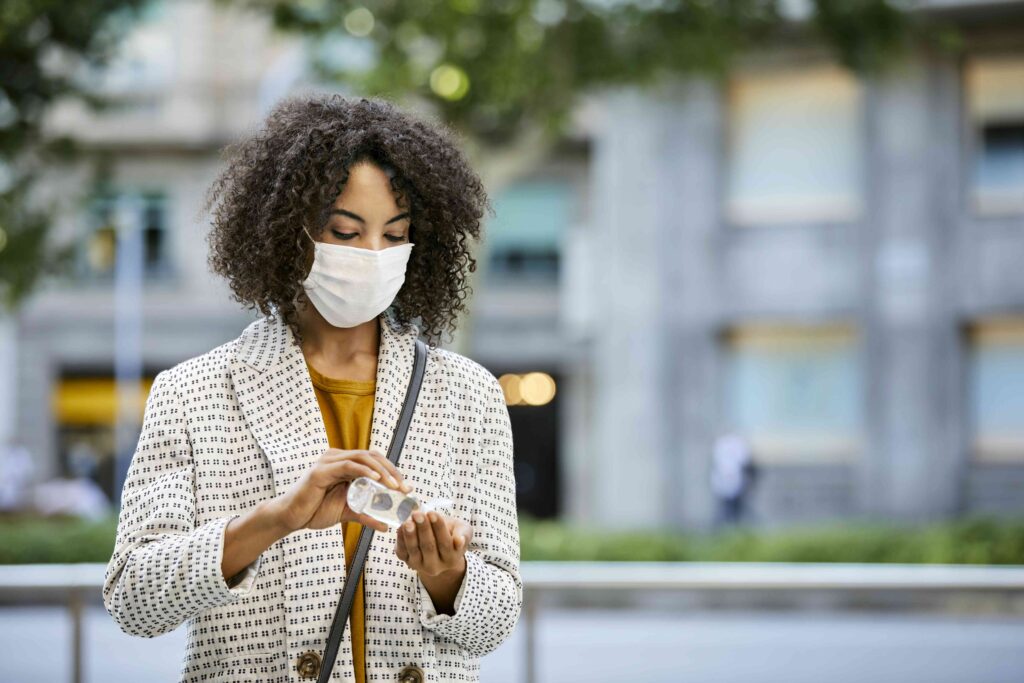:max_bytes(150000):strip_icc():format(jpeg)/Health-GettyImages-1254360874-995c7ade1adc47d49afd944565869019.jpg)
The incubation period for a viral illness like COVID-19 is the time between exposure to the virus and when symptoms first appear.
The COVID incubation period typically ranges from about two to 14 days. About two days before your symptoms begin, you become contagious and can spread the infection to other people.
The COVID virus is always changing; therefore, researchers continue to study it. Research shows that the average incubation period shortens with each new variant (type), meaning you can spread the virus sooner after exposure. It also suggests that newer variants are more contagious.
Average COVID incubation periods for the current different variants are:
- Original alpha variant: Five days
- Beta variant: 4.5 days
- Delta variant: Four days
- Omicron variant: Three days
Factors Influencing Incubation
Certain factors may affect the length of the COVID incubation period, including age and sex.
Adults over age 40 and children seem to have longer incubation periods than the general population. People born male may also have a slightly shorter incubation period than people born female.
COVID is at its most contagious from two days before symptoms appear to three days after they start. As time passes and symptoms get better, you become less likely to pass it along.
Some early pandemic studies found that viral load (the amount of the virus in your body) is at its highest about two days before symptoms begin. However, a recent study found that the peak viral load for people who received the COVID vaccine and had the Omicron variant was around the fourth day of symptoms.
People with high viral loads or more severe symptoms are more contagious than those with low viral loads and can stay contagious for more than 10 days.
You can also be contagious if you have:
- No symptoms: If you’re asymptomatic, you’re at your least contagious. However, you can still pass the virus along.
- Longer exposure times: If you’re around someone who has COVID for an extended period, such as a family member, you are more likely to contract and spread the virus.
- A compromised immune system: If you have a weaker immune system, you’re more likely to be contagious for more than 10 days after symptoms start.
Testing After Exposure
If you come in contact with someone who has COVID, consider following these steps:
- Take a test five days after exposure to someone with COVID. Waiting five days allows the viral load to build up enough for the test to detect the virus.
- Stay home or wear a well-fitting mask when around other people for the next five days if the test is positive.
- Retest after 48 hours if your first test was negative after exposure or if you have symptoms. If that test is negative, perform a third test after another 48 hours.
Remember that at-home COVID tests can give false negative results, where your test results may be negative even if you have the COVID virus. For this reason, repeat testing is important.
Currently, more than 98% of the United States population has some immunity to COVID. Immunity can come from previous infections or vaccines. Being vaccinated for COVID makes you 50% less likely to develop a severe case. The overall result is that COVID infections have become less dangerous.
People who are fully vaccinated can still get breakthrough infections of COVID. Research on breakthrough infections is ongoing, with some suggesting they have a shorter incubation period. However, this may be because this research involves newer variants of COVID, which have shorter incubation periods.
The Centers for Disease Control and Prevention (CDC) no longer offers guidelines for isolating after COVID exposure. Instead, guidelines focus on people who develop symptoms as they are more likely to spread the virus than someone without symptoms.
During the incubation period, you can still take action to prevent spreading the virus to others:
- If you have respiratory (lungs, nose, mouth, and airways) symptoms, stay home and take a COVID test
- Isolate until your symptoms improve and you haven’t had a fever for at least 24 hours
- If you’re asymptomatic but test positive for COVID, consider staying home or wearing a mask around other people for five days after the exposure
- If you test negative after five days and don’t have a fever, you can stop wearing a mask and isolating
It is also important to take good care of yourself during a possible COVID incubation period. Be sure to:
- Monitor yourself for any symptoms, including a fever
- Eat healthy foods and drink plenty of water
- Get lots of rest
If you develop serious symptoms such as trouble breathing, chest pain, or confusion, seek medical care right away.
The COVID-19 incubation period is the time it takes for symptoms to develop after exposure to the virus. It typically ranges from two to 14 days, with an average time of 3-5 days.
You can begin spreading the COVID virus during the incubation period, before you start having symptoms.



